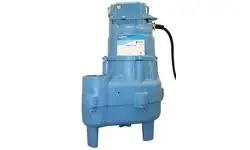Khmer
- Afrikaans
- Albanian
- Amharic
- Arabic
- Armenian
- Azerbaijani
- Basque
- Belarusian
- Bengali
- Bosnian
- Bulgarian
- Catalan
- Cebuano
- Corsican
- Croatian
- Czech
- Danish
- Dutch
- English
- Esperanto
- Estonian
- Finnish
- French
- Frisian
- Galician
- Georgian
- German
- Greek
- Gujarati
- Haitian Creole
- hausa
- hawaiian
- Hebrew
- Hindi
- Miao
- Hungarian
- Icelandic
- igbo
- Indonesian
- irish
- Italian
- Japanese
- Javanese
- Kannada
- kazakh
- Khmer
- Rwandese
- Korean
- Kurdish
- Kyrgyz
- Lao
- Latin
- Latvian
- Lithuanian
- Luxembourgish
- Macedonian
- Malgashi
- Malay
- Malayalam
- Maltese
- Maori
- Marathi
- Mongolian
- Myanmar
- Nepali
- Norwegian
- Norwegian
- Occitan
- Pashto
- Persian
- Polish
- Portuguese
- Punjabi
- Romanian
- Russian
- Samoan
- Scottish Gaelic
- Serbian
- Sesotho
- Shona
- Sindhi
- Sinhala
- Slovak
- Slovenian
- Somali
- Spanish
- Sundanese
- Swahili
- Swedish
- Tagalog
- Tajik
- Tamil
- Tatar
- Telugu
- Thai
- Turkish
- Turkmen
- Ukrainian
- Urdu
- Uighur
- Uzbek
- Vietnamese
- Welsh
- Bantu
- Yiddish
- Yoruba
- Zulu
Telephone: +86 13120555503
Email: frank@cypump.com
ធ្នូ . 04, 2024 10:14 Back to list
clean water transfer pump
Clean Water Transfer Pumps Ensuring Safe and Efficient Water Movement
In our increasingly industrialized world, the demand for clean water has never been higher. Clean water transfer pumps play a crucial role in moving freshwater from one location to another, whether it be for agricultural irrigation, municipal water supply, or industrial processes. These pumps not only facilitate the distribution of clean water but also ensure that it remains uncontaminated throughout the transfer process.
Understanding Clean Water Transfer Pumps
Clean water transfer pumps are specifically designed to move water that is free from harmful impurities and sediments. Unlike other types of pumps that may handle wastewater or contaminated fluids, clean water pumps focus solely on the safe transportation of potable water. They are engineered to prevent contamination through the use of non-corrosive materials and advanced sealing technologies, ensuring that the water remains pure as it moves through pipelines.
The operation of these pumps often relies on centrifugal force. When the pump is activated, an impeller spins rapidly, generating a low-pressure area that draws water into the pump and forces it out at a higher pressure. This mechanism allows for efficient and effective transfer of clean water over varying distances and elevations.
Applications of Clean Water Transfer Pumps
Clean water transfer pumps find applications in numerous sectors, including
1. Agriculture In agriculture, these pumps are essential for irrigating crops. They help farmers efficiently use water resources, ensuring that crops receive the necessary hydration without wasting water. This is particularly important in regions where water scarcity is a major concern.
2. Municipal Water Supply Cities and towns rely on clean water transfer pumps to transport treated water from treatment plants to households and businesses. These pumps are vital in maintaining a consistent and reliable water supply, which is fundamental for public health and sanitation.
3. Industrial Use In various industries, clean water is needed for production processes, cooling systems, and equipment wash-downs. Clean water transfer pumps ensure that the water used in these applications is contaminant-free, protecting both products and processes.
clean water transfer pump

4. Emergency Services During emergencies, such as firefighting, clean water transfer pumps can be deployed to quickly supply large volumes of water needed to combat fires or for disaster relief efforts.
Benefits of Clean Water Transfer Pumps
The benefits of using clean water transfer pumps are manifold. Firstly, they enhance water efficiency by enabling precise control over water flow, which reduces waste. Secondly, the ability to transport water over long distances ensures that even remote areas have access to clean water. Thirdly, with advancements in pump technology, many modern clean water transfer pumps operate more quietly and use less energy, contributing to both environmental and economic sustainability.
Moreover, maintaining high standards of water quality during transfer is vital for public health. Regular maintenance and monitoring of clean water transfer pumps can help prevent breakdowns and ensure that the water remains uncontaminated throughout the transfer process.
Future Trends in Clean Water Transfer Pumps
Looking ahead, the future of clean water transfer pumps will likely be shaped by advancements in technology. Innovations such as smart sensors and IoT connectivity are paving the way for more efficient and automated pump systems. These technologies can provide real-time monitoring of water quality and pump performance, enabling quick adjustments to optimize operational efficiency.
Additionally, as climate change continues to pose challenges to water availability, clean water transfer pumps will become increasingly important in managing and distributing water resources efficiently. The integration of renewable energy sources, such as solar or wind power, into pump operations may also provide a sustainable solution for water transfer, reducing reliance on fossil fuels and lowering carbon footprints.
Conclusion
In conclusion, clean water transfer pumps are pivotal to ensuring the safe and efficient movement of potable water across various applications. As the demand for clean water continues to rise, investing in advanced pumping solutions will be paramount for ensuring access to this vital resource. By embracing innovative technologies and practices, we can enhance the sustainability and reliability of our water supply systems for generations to come.
-
ISG Series Vertical Pipeline Pump - Chi Yuan Pumps Co., LTD.|High Efficiency, Energy Saving, Low Noise
NewsJul.30,2025
-
ISG Series Vertical Pipeline Pump- Chi Yuan Pumps|High Efficiency&Low Noise
NewsJul.30,2025
-
ISG Series Vertical Pipeline Pump-Chi Yuan Pumps Co., LTD.|High Efficiency&Energy Conservation
NewsJul.30,2025
-
ISG Series Vertical Pipeline Pump - Chi Yuan Pumps Co., LTD.|Advanced Hydraulic Design&Energy-Efficient Solutions
NewsJul.30,2025
-
ISG Series Vertical Pipeline Pump - Chi Yuan Pumps Co., LTD.
NewsJul.30,2025
-
ISG Series Vertical Pipeline Pump - Chi Yuan Pumps Co., LTD.|energy-efficient fluid handling&industrial durability
NewsJul.30,2025










